Air New Zealand is preparing to test a shipment of sustainable aviation fuel as part of a broader decarbonisation programme that includes assessments of electric and hydrogen propulsion systems for short-haul aircraft. A consignment of 1.2 million litres of neat SAF has been sourced from renewable fuels company Neste and imported to New Zealand by locally-based Z Energy to test and help develop a supply chain for imported supplies while the country continues to explore the establishment of a local SAF industry. The SAF imported to New Zealand was developed by Neste from renewable waste and residue raw materials and delivered to the Marsden Point Fuel Import Terminal, north of Auckland. After blending with conventional aviation fuel, the product will be pumped to Auckland Airport, the airline’s home hub, through existing infrastructure.
“This is a major milestone for us,” said Greg Foran, Air New Zealand’s Chief Executive Officer. “Air New Zealand is already one of the most fuel-efficient airlines in the world with our modern fleet, but the future of travel relies on low-carbon air transport. By 2030, we expect our fleet to be fuelled by 10% SAF.”
While the first flights to use the fuel have not been announced, Air New Zealand said the initial supply would be sufficient to fuel the equivalent of about 400 roundtrip flights between Auckland and the national capital, Wellington. “While we are starting out small, it will help us to test the supply chain and understand the true cost of importing SAF into New Zealand,” said Foran. “Currently, SAF only makes up less than 1% of the global fuel supply and is around three-to-five times the cost of fossil jet fuel, so while sourcing it is a challenge, it’s one we are tackling head on.”
The Neste SAF arrived in New Zealand one year after Air New Zealand and the Ministry of Business, Innovation and Employment signed a Memorandum of Understanding to assess the feasibility of developing a local SAF facility in the country. “Commercially producing SAF in New Zealand would not only help lower the country’s emissions and provide enhanced fuel security and energy independence, it would also create jobs and economic development in the regions,” the airline said.
In addition to the SAF trial, Air New Zealand is studying new and retrofitted electric and hydrogen propulsion systems for short-range domestic operations.
The New Zealand SAF programme increases deployment of the fuel in the Asia-Pacific region, following trials or commitments in other markets, including Japan, Singapore and Malaysia, and indications that the new Australian government will also embrace SAF following its recent confirmation that it will form an advisory body similar to the UK’s Jet Zero Council. While Asia-Pacific is the largest collective air transport market, it seriously lags Europe and the US on SAF.
Air New Zealand is continuing to engage with the New Zealand government to press for policy settings that enable the establishment of a local SAF market and help reduce the high price of the fuel, long-considered by the airline to be a major impediment to its introduction. The government will introduce a sustainable biofuels mandate in 2023 and plans to also legislate a SAF blending mandate.
New Zealand’s Minister for Research, Science and Innovation, Dr Ayesha Verrall, welcomed the industry’s import of the first SAF shipment, acknowledged Air New Zealand’s innovation and reaffirmed the government was working with the aviation sector to explore ways of decarbonising air transport. “We need new solutions as we transition to a low-emissions economy,” said the minister. “This is why it’s encouraging to see the import of SAF. This complements our other work as the government is currently investigating the feasibility of SAF production in New Zealand. Air New Zealand’s work on SAF will also support the government’s Aerospace Strategy, recently released for consultation.”
The acquisition of SAF from Neste comes as the producer expands its Singapore refinery to produce up to 1 million tonnes of SAF per year amidst soaring global demand. The upgraded facility is due to be commissioned early next year to help supply not only the growing Asia-Pacific appetite for SAF but also demand in Europe and the US in particular, where government mandates and incentives have accelerated demand for the fuels.
“Neste has been at the forefront of accelerating the production and use of SAF,” said Sami Jauhiainen, the company’s VP APAC for Renewable Aviation. “We are proud to support Air New Zealand and the New Zealand government with the ambitious climate goals that show a great example for others to follow. With the expansion of our Singapore refinery nearing completion, and the ongoing modification of our Rotterdam refinery, we will be able to produce up to 1.5 million tons of SAF by the end of 2023, ready to support aviation globally and in the Asia-Pacific region.”
Mike Bennetts, CEO of the fuel importer Z Energy, said his company recognised and supported the need for SAF “to become the norm” in New Zealand. “We are pleased to work alongside Air New Zealand and Neste to bring this shipment of SAF into the country and recognise collaboration with others will be essential to help us decarbonise at the scale and pace needed to address climate change.”
In neighbouring Australia, the newly-elected Federal Government recently announced plans for an advisory group similar to the UK’s Jet Zero Council or Canada’s Council for Sustainable Aviation Fuels to help the airline sector achieve net zero carbon emissions. Catherine King, the Minister for Infrastructure, Transport, Regional Development and Local Government, told a Sydney forum on sustainable aviation fuels that climate inaction by the previous national government meant the new administration was now hurrying to make up lost ground.
“We know that industry is looking to sustainable aviation fuels to play a role in emissions reductions and we know the potential for sustainable aviation fuels is significant,” said King, adding the government was keen to expedite collaboration with industry. The airline advocacy group A4ANZ (Airlines for Australia and New Zealand), which convened the SAF forum, welcomed her announcement, saying “SAF must be prioritised in our effort to reach net zero by 2050.” The key members of A4ANZ are the region’s five biggest airlines, Qantas, Jetstar, Virgin Australia, Air New Zealand and Australia’s Regional Express. Qantas, which is actively advocating for establishment of an Australian SAF industry, is using blended SAF on flights from London Heathrow and has signed a SAF offtake agreement in the US.
King said the government would produce an Aviation White Paper to examine all aspects of the industry, prioritising how to maximise aviation’s contribution to achieving net zero carbon emissions. It would also establish a specialist unit to determine how the government and the transport sector could collaborate to achieve net zero, and establish an advisory body through which ministers and industry CEOs could come together to progress low-or-no carbon flight.
“Over recent years, industry has raced ahead of government, and I know many of you are progressing your own initiatives,” she said. “Now, we are hurrying to catch up. With transport being one of Australia’s largest sources of emissions, there is no time to waste.” Without detailing specific initiatives, she added: “We know that industry is looking to sustainable aviation fuels to play a role in emissions reductions, and we know the potential for sustainable aviation fuels is significant. We also know that governments across the world are working closely with industry to drive new innovations in sustainable fuels and sustainable aviation.”
Photo: Air New Zealand


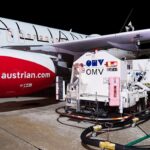
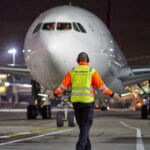
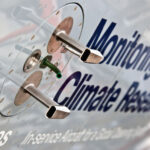

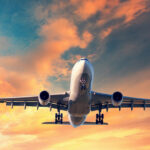
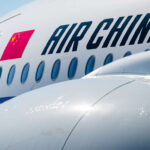
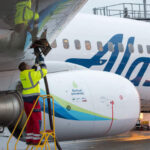
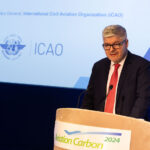
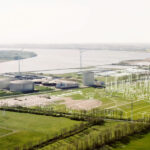
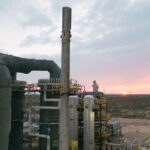
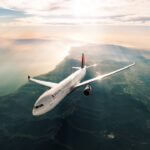
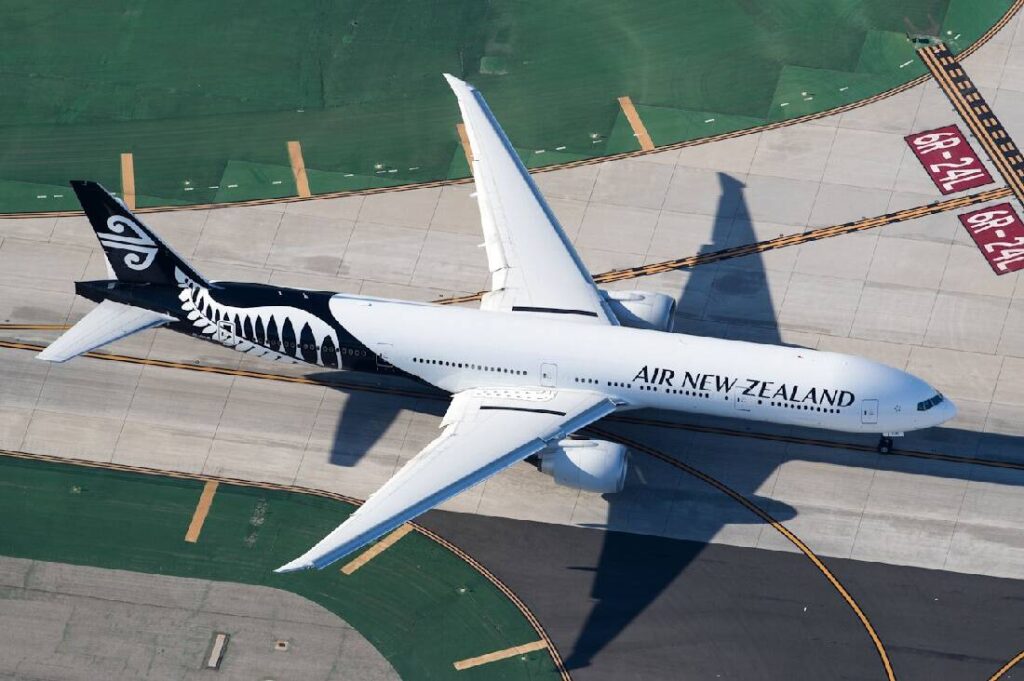

More News & Features
Progress on decarbonising the airline sector has been slow this year, says IATA chief
EASA releases status report on Europe’s SAF production and readiness to meet blending targets
Commentary: China’s fair and equitable solution to civil aviation’s climate challenge
New partnerships formed to drive e-SAF production in Nordic markets
IAG continues to go big on e-SAF as it inks 10-year offtake agreement with Infinium
US on the pathway to achieving its 2030 SAF Grand Challenge target, says DOE report